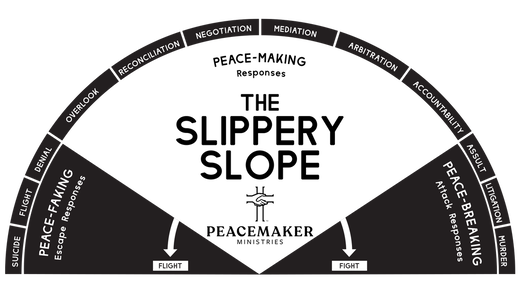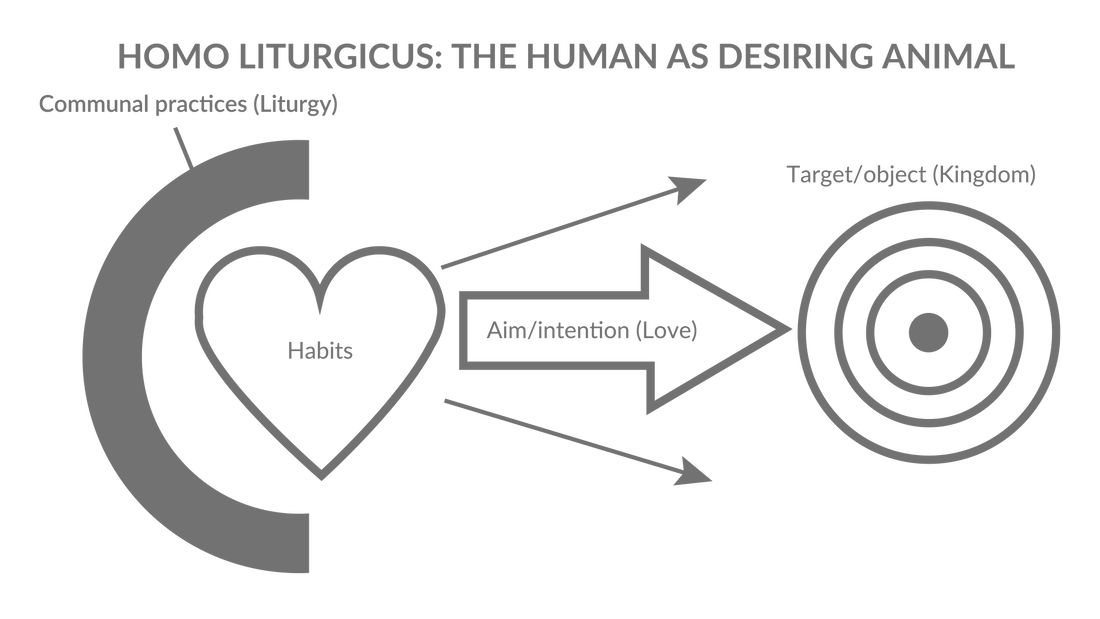TEACHING
|
SUNDAY, MAY 16, 2021, 10:00 AM - ONLINE ONLY
Peace with Others Series Gently Engage Others Galatians 6:1, Matthew 18:15-20 Conflict is an opportunity to serve others but the challenge is making sure we approach someone in a way they can hear. Jesus' teachings on conflict are designed to make space for a reset and renewal of relationship. EMAIL QUESTIONS HERE or TEXT: 604-426-1230 CONNECT WITH US HERE GIVE HERE CATCH-UP (after the service): Join us here! Narrative Lectionary for Week of May 16 |
|
|
Conflict is an opportunity to serve others but the challenge is making sure we approach someone in a way they can hear. Jesus' teachings on conflict are designed to make space for a reset and renewal of relationship.
KEY SERIES IDEA: Personal Peacemaking requires we learn principles that most have never been taught. KEY TEXTS: Galatians 6:1, Matthew 18:15-20 REVIEW: Four “G”s, In dealing well with conflict there are four “G”s 1. GLORIFY GOD--1 Corinthians 10:31 So whether you eat or drink or whatever you do, do it all for the glory of God. How can I please and honor God in this situation?
2. GET THE LOG OUT OF YOUR EYE--Matthew 7:5 You hypocrite, first take the plank out of your own eye, and then you will see clearly to remove the speck from the other person's eye.
How can I show Jesus’ work in me by taking responsibility for my contribution to this conflict?
3. GENTLY RESTORE--Galatians 6:1 Brothers and sisters, if someone is caught in a sin, you who live by the Spirit should restore that person gently. But watch yourselves, or you also may be tempted. How can I lovingly serve others by helping them take responsibility for their contribution to this conflict? 4. GO AND BE RECONCILED--Matthew 5:24 leave your gift there in front of the altar. First, go and be reconciled to that person; then come and offer your gift. How can I demonstrate the forgiveness of God and encourage a reasonable solution to this conflict? TODAY'S FOCUS: Jesus gives us a basic road map for dealing with offense when we cannot overlook. It seems that most so-called Christians would rather fight or avoid something rather than have an honest conversation in private or with a third godly and unbiased party. We want to control our part, thinking that fighting or running does that. It doesn't it just enslaves us to our created stories or “versions of truth”... Sande 185 paraphrased... THE MATTHEW 18 PROCESS Text: Matthew 18:15-20 1. Overlook Minor Offenses 2. Speak in Private/Go Talk to Them [EXCURSUS: pg 146 - when to NOT go alone] 3. Take one or Two Others Along, Matthew 18:16, Philipians 4:2-3, 1 Corinthians 6:1-8 There are two ways outside people can become involved in a dispute:
5. Treat Him/Her like a Non-believer Is It Time To Go to Court? THE WORLD NEEDS RECONCILERS! SUMMARY AND APPLICATION HOME CHURCH(From Resolving Everyday Conflict Participant Guide)
1. What did you think of the "Sin Police"? Have you ever been a victim, or an "officer," of the Sin Police? Explain. 2. To the best of your understanding, explain the importance of modeling acknowledgement and genuine repentance before asking someone else to do that. 3. What should you do if the "golden response" doesn't happen, and the person to whom you've confessed doesn't reciprocate? 4. What might cause a person to become defensive when you broach the subject of personal responsibility? 5. What kinds of things can you say or do to help the person you are confronting not feel like he or she is being backed into a corner? 6. What are some unhealthy motives for wanting to confront someone-or get someone to acknowledge his or her contribution to a conflict? 7. What's the only God-honoring motive for taking the step of loving confrontation? 8. Do you believe that you can accurately judge a person's motives? Explain. 9. Why are "guessed motives" often easily denied by the person to whom those intentions are attributed? 10. Why is it better to focus on what someone actually said or did, and how those words and actions impacted you, than to try to attribute motives to their actions? 11. Why is it important to communicate the priority of the relationship over the resolution of the issue? 12. Why do the intense emotions that often energize conflict diminish significantly when you first ask the other person to describe his or her perception of what's going on? 13. Why does involving mature believers in a conflict at the right time often help to move everyone involved toward resolution? What characteristics should these peacemakers have? 14. Describe how each step of the PAUSE Principle might be applied to a conflict you currently find yourself in. |



